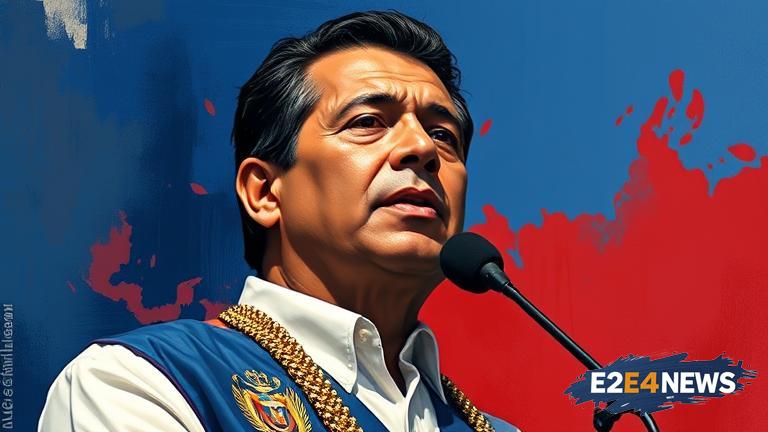El Salvador’s President Nayib Bukele has been a dominant figure in Central American politics since his election in 2019. With his charismatic personality and social media savvy, he has managed to maintain a strong approval rating among his citizens. However, his leadership style has been criticized by many as authoritarian, with some accusing him of undermining democratic institutions and consolidating power. Despite these criticisms, Bukele has implemented several popular policies, including a crackdown on gang violence and a series of infrastructure projects. His government has also made significant investments in education and healthcare, which have improved the lives of many Salvadorans. On the other hand, his administration has been accused of human rights abuses, including the arrest and detention of opposition politicians and journalists. The international community has also expressed concerns about Bukele’s decision to adopt Bitcoin as a legal tender, which has been seen as a risky and unpredictable move. Furthermore, his government’s handling of the COVID-19 pandemic has been criticized, with some arguing that it has been inadequate and ineffective. In addition, Bukele’s relationship with the US has been strained, with the Biden administration expressing concerns about his authoritarian tendencies and human rights record. Despite these challenges, Bukele remains a popular figure in El Salvador, with many citizens seeing him as a strong and effective leader. His approval rating has remained high, with some polls suggesting that he could win re-election in 2024. However, his opponents argue that his popularity is based on a cult of personality, rather than a genuine commitment to democratic values. The future of El Salvador under Bukele’s leadership remains uncertain, with many wondering whether he will continue to consolidate power or whether the country will return to a more democratic path. The international community will be watching closely, as the situation in El Salvador has significant implications for the region and the world. In recent months, Bukele’s government has faced criticism for its handling of a series of high-profile corruption cases, with some arguing that it has been inadequate and ineffective. The government has also been accused of suppressing dissent and restricting freedom of speech, with several opposition politicians and journalists facing arrest and detention. Despite these challenges, Bukele’s popularity remains high, with many citizens seeing him as a strong and effective leader. However, his opponents argue that his leadership style is unsustainable and that the country needs a more democratic and inclusive approach. The US has also expressed concerns about Bukele’s relationship with China, which has been seen as a strategic move to counterbalance the influence of the US in the region. In conclusion, El Salvador’s President Nayib Bukele is a complex and polarizing figure, with both supporters and critics having strong opinions about his leadership style and policies. While he has implemented several popular policies and maintained a strong approval rating, his authoritarian tendencies and human rights record have raised concerns among the international community. The future of El Salvador under Bukele’s leadership remains uncertain, with many wondering whether he will continue to consolidate power or whether the country will return to a more democratic path.





